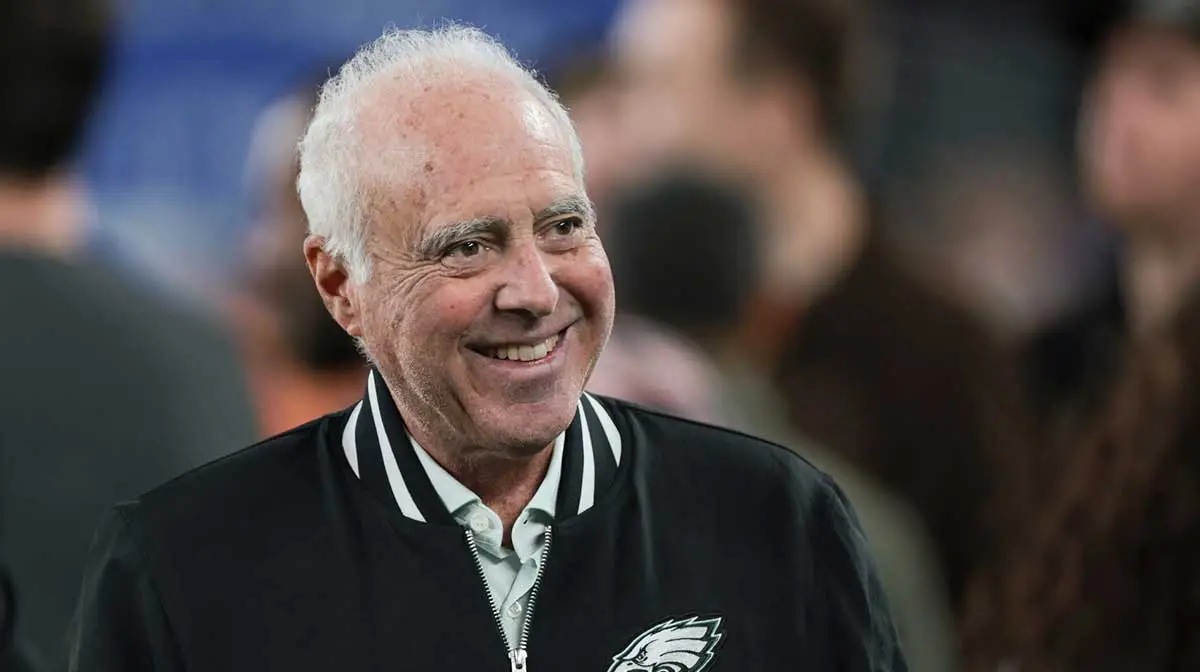Copyright thenationonlineng

Experts have called for ethical leadership, data transparency and youth inclusion in Africa’s sustainability drive. This was the consensus at a stakeholder engagement towards achieving the 2030 United Nations Sustainability Development Goals (SDGs) with the theme “Ethical and Cultural Drivers of Sustainability Reporting: GRI-Based Evidence from Nigerian and Ghanaian Listed Firms”.The engagement at the University of Lagos attractedacademics, industry experts, policymakers, and students in a robust dialogue on how Africa can strengthen ethical governance, enhance sustainability reporting, and accelerate progress toward the 2030 SDGs. The event was convened by the Principal Investigator, Dr Collins Sankay Oboh (Senior Lecturer, Department of Accounting, University of Lagos) under the leadership of the Vice-Chancellor, Professor Folasade Ogunsola (OON, FAS), Deputy Vice-Chancellor (Academic and Research), Professor Bolanle Oboh, with Professor Abdul-Hameed Adeola Sulaimon (Dean, Faculty of Management Sciences) and Professor Solomon Okunuga (Director, Research Management Office) represented by Mrs Angela Itegboje, serving as host and co-host respectively. The project and stakeholder engagement were supported by the Association of Commonwealth Universities (ACU) through its ACU Early Career Researcher Grant. It represents a meaningful international collaboration among scholars from the University of Lagos, the University of Sheffield, and the University of Huddersfield, with field data drawn from Nigeria and Ghana. The event drew an impressive audience comprising distinguished professors and senior lecturers from the Department of Accounting, other departments within the Faculty of Management Sciences, and various faculties across the University community, alongside senior executives from both the public and private sectors, as well as past and present students of the Department of Accounting. The Masters of Ceremonies, Dr Okwy P. Okpala and Dr Bamidele Wale-Oshinowo, ensured a smooth and engaging flow of the programme, creating a warm and intellectually stimulating atmosphere throughout the event. Dr Oboh’s leadership and the ACU’s sponsorship underscore the growing recognition of Africa’s role in shaping the global sustainability narrative, one that blends ethical responsibility, cultural insight, and data-driven policy in advancing the United Nations 2030 Agenda. The keynote address was delivered by Professor Olusegun Vincent, an eminent scholar at Pan-Atlantic University and Lagos Business School, titled “Advancing UN SDGs and Sustainability in Africa through Transparent Reporting.” Vincent posed a critical question: “How close are Africans to attaining the 17 SDGs by 2030, given that only five years remain?” He argued that the SDGs are not abstract global ideals but blueprints for Africa’s collective survival. He highlighted that sustainable development cannot occur without transparent reporting, which builds trust and bridges the gap between intention and action. He noted that frameworks such as the Global Reporting Initiative (GRI), Sustainability Accounting Standards Board, Task Force on Climate-related Financial Disclosures, and the newly adopted IFRS S1 and S2 standards by Nigeria’s Financial Reporting Council and ICAN are crucial in ensuring accountability. These standards identify both risks and opportunities such as renewable energy investments emerging from climate-related challenges. Vincent emphasised that “sustainability reporting has become the currency for global transactions,” underscoring its role in good governance, innovation, and investor confidence. He urged African governments to digitalise data collection, integrate sustainability into public governance, and partner with researchers to close the development gap. He concluded poignantly: “Africa’s journey to 2030 is not a race of speed but a test of sincerity. Transparency must be our compass, and sustainability our creed.” The Principal Investigator, Oboh, presented his research on “Ethical and Cultural Drivers of Sustainability Reporting: GRI-Based Evidence from Nigerian and Ghanaian Listed Firms.” Building on the strong foundation laid by Professor Vincent, Dr Oboh focused on four Sustainable Development Goals, Quality Education, Decent Work and Economic Growth, Climate Action, and Peace, Justice and Strong Institutions, highlighting the indispensable role of ethics and culture in driving sustainability, beyond mere regulatory compliance. Oboh emphasised that sustainability is a universal responsibility, affecting every sector and every individual. At its core, it involves managing resources in a way that meets present needs while safeguarding the ability of future generations to do the same. Drawing on Nigeria’s historical experience, he noted how the tertiary education system of the 1960s to mid-1980s thrived when institutional and individual welfare were properly sustained, and lamented that failure to maintain these structures has made the past appear more robust than the present. Focusing on the business sector as a critical driver of sustainability, Dr Oboh challenged organisations to examine their posture towards sustainable practices alongside profit-making. He argued that firms involved in corporate fraud or financial manipulations cannot be expected to genuinely embrace sustainability, which must stand as a parallel commitment to ethical and responsible operations. Using the Global Reporting Initiative (GRI) as a reference, he explained how companies are expected to report comprehensively on their impact on people, planet, and profit. He cautioned, however, that some firms adopt sustainability reporting simply to gain legitimacy or obscure unethical practices, often prioritising profit over genuine accountability. Oboh explored the influence of moral and organisational culture on sustainability reporting. He contrasted moral idealism, which reflects a firm commitment to doing what is right, with moral relativism, in which reporting occurs only when aligned with financial gain. He noted that a family-oriented organisational culture, exemplified by the Department of Accounting at UNILAG, supports communication and sustainable operations, while an “adhocracy” culture, which encourages innovation and risk-taking, can result in ethical breaches when patience or diligence is lacking, as illustrated by the Boeing autopilot tragedy. Interestingly, market-driven cultures were found to have a positive effect on sustainability reporting, indicating that local business norms and cultural factors shape how sustainability is implemented. Addressing the impact of emerging technologies, Dr Oboh noted that Artificial Intelligence, while transformative, must be ethically governed. Improper use could exacerbate inequality or environmental harm, undermining the very goals sustainability seeks to achieve. He concluded by calling for ethical re-engineering across African companies, stressing the need for strong regulations that cultivate voluntary patriotism, genuine stakeholder care, and accountable business practices. Oboh emphasised that his research provides actionable insights for academics, corporate leaders, and government institutions, offering a roadmap for embedding ethics, culture, and accountability at the core of sustainable business practice. The panel discussion that followed proved to be one of the most engaging segments of the event, as experts tackled the real-world dimensions of sustainability from climate change and ethical leadership to youth inclusion, policy reform, and migration. Moderated with insight and flair by Dr Bamidele Wale-Oshinowo (University of Lagos), the session brought together Professor Olusegun Vincent (Pan-Atlantic University), Professor Olatunde Julius Otusanya (Head of Department, Accounting, University of Lagos), Dr Imoleayo Foyeke Obigbemi (Senior Lecturer, Department of Accounting, University of Lagos), and Madam Aderonke Ajibola, (CFO, Ruta Exploration and Production and Managing Partner, Avava Consulting). Together, they delivered a compelling exchange of perspectives that blended academic rigour with practical wisdom. Vincent opened the conversation by affirming that climate change is not a myth but a measurable reality. Drawing on both local and global evidence, he pointed to the unpredictability of Nigeria’s weather patterns once defined by clear seasonal rhythms, and the increasing prevalence of natural disasters worldwide. “The evidence is before us,” he noted, “from erratic rainfall to ozone depletion, climate change is visible and real.” Addressing the issue of governance and policy reform, Professor Otusanya delivered a sharp critique of uneven law enforcement in Africa. He argued that selective justice undermines public trust and weakens accountability, remarking pointedly, “When corruption goes unpunished at the top, justice at the bottom loses meaning.” He called for a system where laws are applied equitably and where consequence management is not only enforced but balanced and transparent. On the subject of leadership and accountability, Ms Aderonke Ajibola urged African governments to “lead from the front” by publishing sustainability reports for their own institutions. She argued that ethical leadership must begin with example, stressing that citizens and corporations alike are inspired to act responsibly when integrity is modelled at the top. She also highlighted the need for public-private collaboration, suggesting that oil and gas firms could form strategic alliances to share the high costs of clean-energy infrastructure. Bringing the conversation closer to the grassroots, Dr Imoleayo Obigbemi focused on the cultural and behavioural barriers that hinder sustainability, especially among small and medium-sized enterprises (SMEs). She explained that many local businesses rely on environmentally harmful practices, such as the use of firewood, often due to cost and cultural preferences. She recommended that government incentives, such as lower gas prices or tax reliefs, could help drive behavioural change and promote greener alternatives. Together, the panellists agreed that Africa’s sustainable transformation must be rooted in ethics, cultural understanding, and fairness in consequence management. They stressed that sustainability cannot be imported wholesale from Western models, it must reflect African realities, values, and community structures. The discussion culminated in a series of key takeaways that captured the collective wisdom of the panel: Ethical leadership and cultural alignment are foundational to sustainable governance; Environmental laws must be strengthened and enforced without bias; The UN SDGs should be fully integrated into national budgets and planning processes; Collaboration between institutions and the private sector is essential to accelerate progress; SMEs must receive support to manage the financial cost of green transitions; Africa must industrialise differently, avoiding the carbon-heavy mistakes of the West and embracing green growth as a competitive advantage; Simplifying scientific and sustainability data into relatable stories, using local languages and faith-based channels, will improve community engagement; Diversity, Equality, and Inclusion (DEI) policies in Africa must reflect local realities, addressing ethnicity, religion, gender (including attention to the male child), and socio-economic diversity; Governments should create enabling environments and bilateral talent-sharing schemes to curb brain drain and encourage skilled professionals to retur. As the session drew to a close, Ms Ajibola made a passionate appeal for youth inclusion, urging policymakers and institutions to empower young Africans as active partners in driving sustainable change. “We must give young people platforms to speak, act, and lead, because the future belongs to them,” she declared. In her closing remarks, Dr Bamidele Wale-Oshinowo summarised the spirit of the discussion with precision and depth. She reminded the audience that achieving the United Nations 2030 Sustainable Development Goals is not merely a global ambition, but a moral and ethical responsibility. It demands evidence-based policies, ethical leadership, and sustained collaboration across all sectors. “Knowledge alone is not enough,” she concluded. “We must translate these insights into measurable action that transforms institutions, communities, and lives.” The event concluded with an engaging and insightful question-and-answer session moderated by Dr Okwy Okpala of the Department of Accounting. Dr Okpala enriched the discussion with thought-provoking reflections drawing on the Braithwaite Law of Regulation, which states: “Very few people do good things all the time, and very few people do bad things all the time. But good people do bad things due to ignorance, while bad people do good things due to the need for compliance.” Expanding on this, he emphasised the urgent need for stronger government regulations, public awareness, and consistent enforcement of sustainability practices, noting that these are “indisputably good things” that benefit both society and the environment. Following the Q&A session, Professor Otusanya delivered his closing remarks, commending the quality of discourse and reaffirming the Department’s dedication to research-driven impact and ethical leadership. A memorable highlight of the event was the inauguration of an Endowment Fund, inaugurated by Professor (Mrs) Folake Olowokudejo, which followed a ₦1,000,000 personal donation by Dr Collins Oboh from the unutilised balance of his research grant. From this fund, ₦100,000 will be awarded annually to the best student project on sustainability. Dr Oboh explained that his gesture was inspired by his Christian faith, citing biblical teachings on stewardship, rest, and divine wisdom as reminders that research should serve as a tool for societal renewal and moral responsibility. The impactful event closed with a heartfelt prayer by Pastor Moses Ogianyo at 1:35 p.m., marking a memorable milestone in the University’s continuing commitment to sustainability, ethics, and responsible scholarship.



